There are a few explanations as to why your cat might suddenly have abandoned its litter box and started pooping in the shower, bathtub, or sink. It's a frustrating, smelly, and all-around unpleasant turn of events. Fortunately, if your kitty is healthy, you can probably stop this unwanted behavior by changing up things in your bathroom and making the litter box more inviting.
Feline bathroom behavior varies between cats, and litter box issues may stem from underlying health conditions, stress, environmental factors, or a combination of any of these. It's helpful for you to take some time to review your cat's emotional and physical health so you can determine what the problem is and how best to solve it.
Why Do Cats Poop in the Bathtub or Sink?
Cats are generally very clean and neat animals. When your cat defecates in an off-limits area after faithfully using its litter box (a practice known as house soiling), it's trying to tell you something. First, check the litter box to make sure it's not full, smells odd, or has tipped over. Also, make sure nothing has blocked your cat's access to the litter box. Anything about the box that seems off to your cat may prompt it to do its business somewhere else.
Health Issues
Then, consider a health issue. Cats that make a point of eliminating in front of the owner, squatting to pee or poop in your presence, may be crying out for help. Cystitis (inflammation of the bladder) and bladder stones sometimes prompt cats to defecate (and urinate) in inappropriate places and they may make a point of it by posturing in front of their human. Painful elimination due to constipation, for example, can prompt cats to avoid the litter box if they associate it with discomfort. If you suspect the change is due to a health concern, make an appointment with your vet right away. The vet will likely conduct a physical exam and may also use bloodwork or radiographs to determine if there is an infection or digestive or urinary issue.
Behavioral Issues
A change in the household dynamics is a frequent cause of stress and anxiety in sensitive cats and may result in their defecating outside the litter box. Examples of this may include an addition to the family such as a new baby or the loss of a family member. Additionally, major changes in your daily routine may trigger stress for your cat, such as a new work schedule, or increased time the cat is left alone. Certainly, the addition of a new pet to the house can result in house soiling as well.
Defecating outside the litter box is rarely a form of marking behavior, which is most frequently demonstrated by urinating on vertical surfaces.
How to Stop Your Cat From Defecating in the Bathtub or Sink
Once health causes have been ruled out, there are a few simple measures you can take to help modify your cat's unwanted behavior. Try the technique that seems to work best for your cat, lifestyle, and situation. Feel free to make a few changes at once.
Litter Box Changes
Making some simple changes to the actual litter box can help the situation. Add a second litter box, preferably in a different room so that your cat has an option. Empty litter boxes up to two or three times a day and clean them out once a week. Try to use a larger-sized litter box to encourage its use. Base the litter box size on the cat's size and not the location it fits in. The box should be about one and a half times the size of your cat.
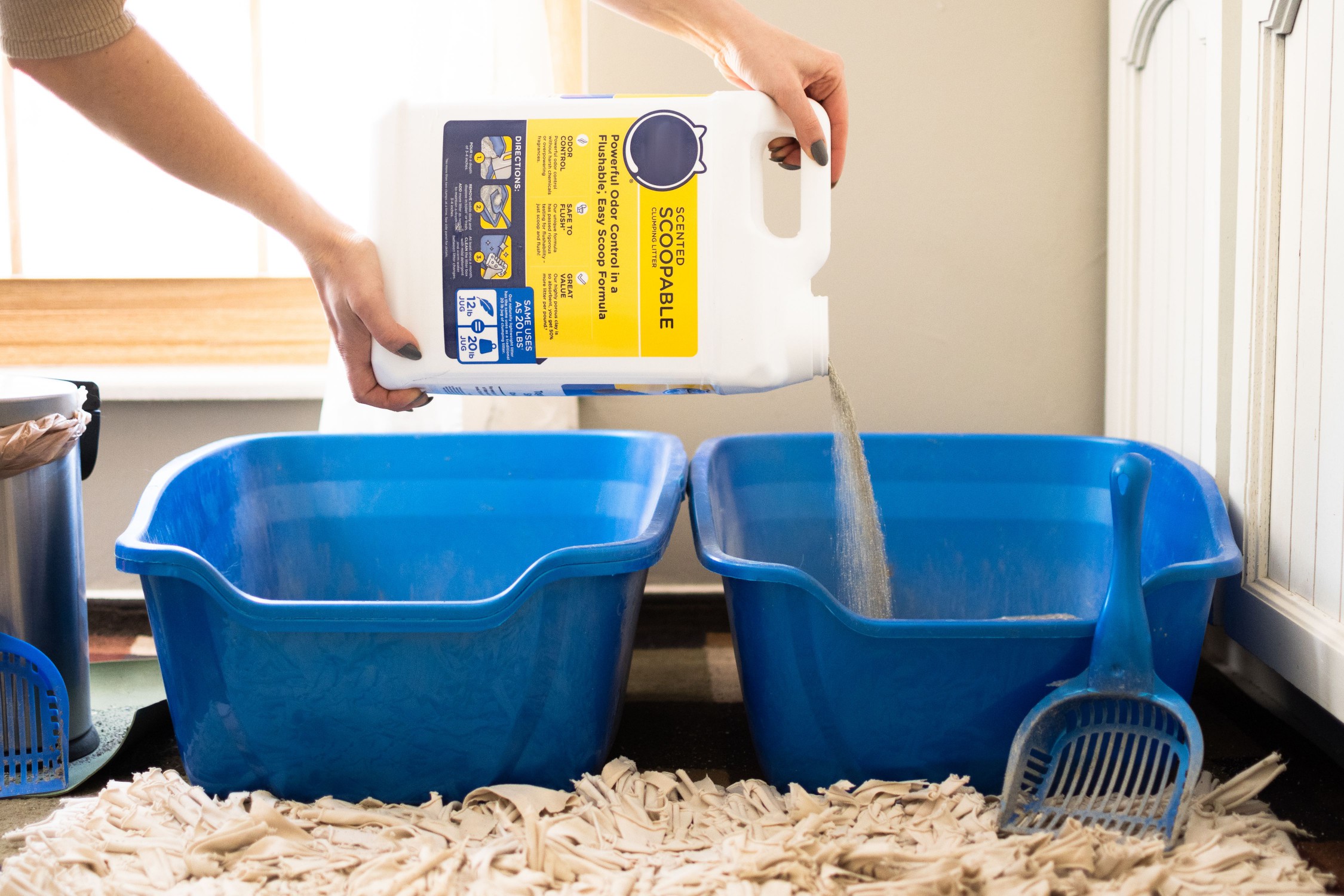
The Spruce / Meg MacDonald
What to Avoid
Make sure the litter box is not near where the cat eats and drinks. Some cats don't like covered or automatic cleaning boxes. The lights, noise, and automatic actions can scare cats and an enclosed box can feel claustrophobic. These may be enough to make a cat avoid using its box.
Changes to the Environment
Fill the sink and tub with a small amount of water. This water may discourage your cat from entering the tub or sink and prevent the action from occurring. Try a new brand of litter. Some cats don't like the texture, smell, or other factors of certain types.
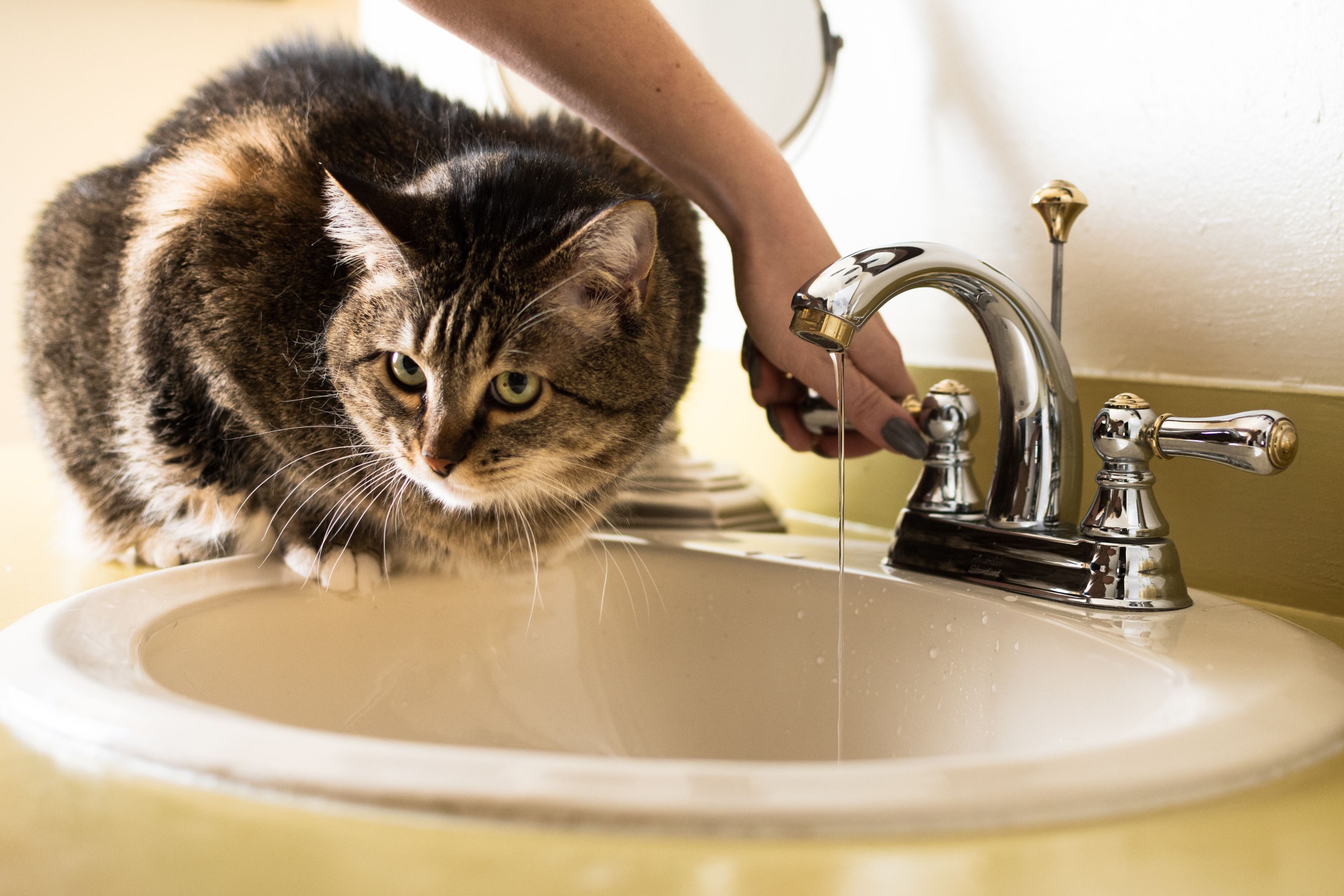
The Spruce / Meg MacDonald
Next Steps
If your cat continues this behavior even after environmental changes have been made, a veterinary behaviorist who specializes in felines could be helpful. This person can help reteach your cat the appropriate behavior and may come up with solutions specific to your cat and living situation. Some behavioral issues, especially issues stemming from anxiety, may be alleviated through the use of behavior-modifying medications. If the problem persists, discuss this option with your veterinarian. Never give your pet any medication intended for use in humans.
Related Article
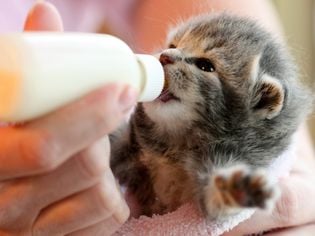
Homemade Kitten Milk Replacer Recipes
Homemade kitten milk replacer, or formula, is essential for kittens that won't suck, or when there

Are Calico Cats Always Female?
Although most people know that the vast majority of calico cats are female, they don’t always kno

Tapeworms in Cats
Tapeworms are a common parasite in cats that live in the intestines. They can be excreted in t
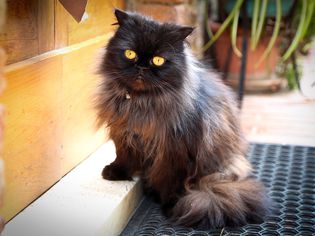
Are Ant Traps Safe for Cats?
Ants can be annoying pests and keeping them out of your home can be difficult, especially in the sp
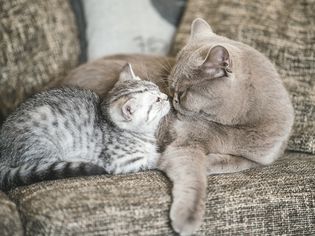
Leptospirosis in Cats
Although rare, cats can contract leptospirosis, a bacterial infection usually found in still, cont

The 8 Best Cat Toothpastes
The Spruce Pets / Amelia Manley Developing a regular tooth brushing routine with your cat
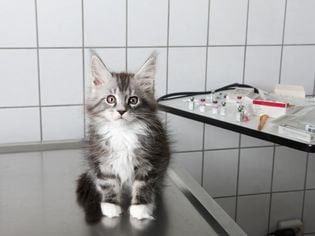
Cystitis in Cats
Cystitis is not only a painful condition, it can also be dangerous. Cats that struggle to urinate o

Giardiasis in Cats
Not all cat owners may be familiar with giardiasis, but this infectious disease can cause serious s
About FleaFree Feline
We are a premier digital platform committed to delivering high-quality content to our readers. Our mission is to provide accurate, reliable, and engaging information that adds value to our audience's daily lives.
Our team consists of experienced content creators and subject matter experts who uphold the highest standards of professionalism. In an era of information overload, we curate content with care, ensuring our users receive only the most relevant and trustworthy information.
Beyond just reporting facts, we focus on depth and context. Through expert analysis, comprehensive research, and clear presentation, we help our audience gain meaningful insights and make informed decisions.
We take pride in being a trusted information source for our growing community of readers. Our user-first approach means we continuously adapt to provide content that meets our audience's evolving needs and interests.
Innovation and excellence drive everything we do. We're committed to improving our platform and services to deliver the best possible experience for our users.

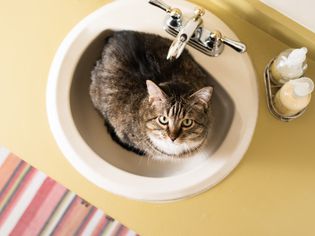
Comments on " How to Stop Your Cat From Pooping in the Sink or Bathtub" :